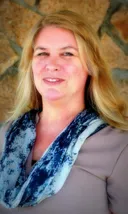Rural Recruitment: How to Identify and Mentor Rural Superstars

Antonio Diaz/123RF.com
Some rural health clinicians are Superstars - in their careers, they will see it all, do it all, practice at the top of their scope, and take home more than their share of patient “thank yous” (e.g., homemade pies). If you’ve done your homework and are using all the search tools, tips, and resources at your disposal, you’re ready to dive deeper to identify these gems. Why are they so important to your team? Leading by example, these Superstars will model a work ethic and attitude that others will aspire to. Rural Superstars often pay it forward. Some will volunteer to precept or mentor students or residents. When it’s time to recruit for new physician and advanced practice provider positions, those same Rural Superstars will be primed to help you identify the next generation of rural healthcare leaders. With a strong clinical skill set as their foundation, Rural Superstars exhibit one or more important traits that lead to their success and longevity in community service. Some may be exceptionally resilient and strong leaders. Others are mission-driven or empathetic communicators. The best Rural Superstars will have a blend of all these traits. Learn more about the qualities to look for as you recruit and mentor Rural Superstars for your practice or hospital.
Attributes of Rural Superstars
What Makes a Leader?
If you regularly exhibit at healthcare specialty or related conferences, seek out those candidates who exhibit leadership qualities. It’s not hard to pick out the natural leaders – others just seem to gravitate to them. One core quality of leadership is resiliency, and data shows that resiliency in rural healthcare clinicians is a trait tied to higher rates of retention. This one is a bit tougher to gauge from brief phone conversations, emails, or text messages with students, residents or clinicians, but the right probing questions can help point to resilience. One probe adapted from motivational interviewing is, “Was there an event or situation in your life that led you to a career in healthcare?” Often the answer to this question - intentionally very open-ended - will answer the question of resiliency in your candidate pool.
Another trait associated with leadership skills is the tendency to go above and beyond in extracurricular activities. Be knowledgeable about academic requirements and electives when recruiting those early in their healthcare careers. For mid-career candidates, look for the most recent volunteer activities, especially community-based and service-related activities. These experiences speak to what is commonly known as a “mission-driven” focus that lends itself to longer terms of service in rural or underserved communities. Once hired, partner your Rural Superstar with a hospital or practice mentor to help polish her or his leadership qualities. The return is two-fold; programs to mentor healthcare leaders can often translate to community leadership and service, which benefits both your Rural Superstar and the community.
“Mission-Driven” Focus
Those who are mission-driven are not deterred by obstacles in their personal life or career path, and they may have overcome significant adversity to embark on a career in healthcare. They may have tried other careers, only to find a strong calling to work in healthcare - specifically rural healthcare. Regardless of what they hear from fellow students or residents, faculty, or family members, those who are mission-driven follow a path that is clear and unwavering. In interviews they may share things like, “I’ve known since 5th grade I would be a nurse” or “I made a promise to my grandmother that I would go into healthcare.” Mission-driven clinicians typically have an early recollection or association with healthcare, positively or negatively, that compels them to work in smaller towns or communities. Healthcare clinicians with a mission-driven focus will thrive in relationships with like-minded clinicians and staff. Hospital or practice challenges that require fresh eyes, perspectives, and perseverance will benefit from Rural Superstars’ engagement; they will flourish in those roles, especially if they align with their core values and are voluntary (versus mandated).
Communication +
Most rural healthcare clinicians, even those delivering care through telemedicine, will provide care that involves direct, verbal communication with patients. In rural practice settings strong communication skills are vital to a clinician’s success and longevity. Much like their urban counterparts, rural healthcare clinicians will work up diagnoses and share treatment plans with patients. Some patients in rural communities have low literacy; healthcare clinicians working with these patients must have excellent verbal communication skills. I think back to a Rural Superstar in my career whose practice was just 20 backwoods miles from Charleston. Ten or so years ago, her primary care practice was just one of two that served a community of a little more than five thousand people. She developed systems to help patients with low literacy better manage their medications through pictograms and similar hacks. Her communication style was clear and avoided the use of medical lingo. Facts were conveyed, and she always confirmed that patients understood what they had just heard. Ensure your Rural Superstars have other outlets for their strong communication skills; offer them the opportunity to provide input and help shape hospital or practice promotions in concert with your Communications lead.
Empathy
Hand in hand with communication is empathy. Even the most skillful and well-trained clinician will struggle in rural service if her or his bed-side manner is lacking. Look for strong communicators who are also warm and seek those who have a sense of humor. Ideally all healthcare clinicians who have direct patient contact exhibit this quality. Rural Superstars who are authentically empathetic are more likely to build and maintain lasting rapport with patients. Help your Rural Superstar connect with community-based nonprofit boards to amplify his or her empathy for the greater good of your community.
Remember our Rural Superstar? She exemplifies all the core traits discussed here. She is a mission-driven and resilient leader. She is an empathetic and strong communicator….and she has reached a milestone, serving her rural community for more than 20 years! The long-term benefits of recruiting a Rural Superstar to your hospital/practice and community is well worth your time, energy, and creative thinking.
Related Posts
